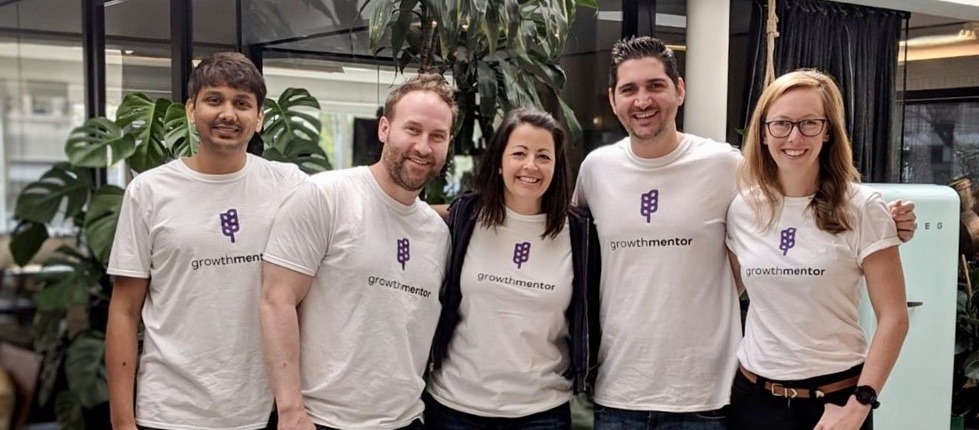Why You (Probably) Shouldn’t Be a Startup Mentor
Everyone and their dog seems to want to be a startup mentor these days.
Maybe it’s the allure of “giving back,” maybe it’s the fancy title on LinkedIn, or maybe it’s the warm fuzzy feelings that come with helping others.
Whatever the reason, I’m here to throw some cold water on that idea.
I’ve spent the last six years running GrowthMentor, watching thousands of mentor-founder interactions unfold. What I’ve learned is that great mentorship – the kind that genuinely moves the needle for founders – is remarkably rare.
Real mentorship is about having the wisdom to know when your experience is relevant and when it isn’t, the humility to admit what you don’t know, and the dedication to show up fully even when it’s inconvenient.
Most importantly, it’s about putting the founder’s needs ahead of your own desire to seem smart or important.
If that sounds demanding, it should.
Let me break down why you might want to think twice before jumping into the mentor pool.
You’re Not as Ready as You Think You Are
Sure, you’ve got some experience. Maybe you’ve run a successful business or two or ran growth for a few years.
But mentoring isn’t just about what you’ve done. It’s about having the maturity to know when your experience is relevant and when it’s not. True mentorship requires a peculiar kind of humility that often comes only after you’ve given enough bad advice to recognize its cost.
I learned this lesson the hard way when I confidently told a founder to pursue a growth strategy that had worked brilliantly for my startup in 2019, only to watch it fail spectacularly in today’s completely different market context.
If you’re still in the “let me tell you how I did it” phase, pump the brakes.
The best mentors I know:
- Spend more time asking questions than sharing stories.
- They’ve evolved beyond the “here’s how I did it” phase to “let’s figure out what makes sense for your specific situation.”
- They recognize that their past successes are case studies, not commandments.
Before you jump into mentoring, ask yourself:
- Can you resist the urge to be the hero of every conversation?
- Are you ready to admit when your experience isn’t relevant?
- Can you find fulfillment in watching someone choose a completely different path than the one that worked for you?
If these questions make you uncomfortable, that’s probably a good sign – it means you understand the weight of the responsibility.
And maybe that self-awareness makes you more qualified than you think.
You Can’t Just “Try It Out”
Even for one-off mentor calls, you need to bring your A-game every single time.
This isn’t something you casually test drive when you’re bored on a Tuesday afternoon.
Each founder who books time with you is showing up with real challenges, often feeling vulnerable, and looking for genuine help. They’ve raised their hand saying “I need support here” – and that deserves serious dedication, even if it’s just for 30 minutes.
At GrowthMentor we’re not asking you to commit to dedicating a specific block of hours per month. There are no minimum time commitment requirements to keep your profile live. But we are asking our mentors to commit to being fully present and engaged whenever they do show up.
I still remember my first mentoring session. I showed up thinking I’d dispense some quick advice and move on with my day. Instead, I met a founder who had bet their life savings on their idea, who had kids to feed, who needed more than just casual guidance. That day changed how I view the responsibility of mentorship.
If you’re not ready to show up fully – even if it’s just for one call a month – take time to reflect on what’s driving your interest in mentoring.
Each interaction matters.
Your Hidden Agenda is Showing
Let me be brutally honest: If you’re viewing mentorship as a backdoor to:
- Fill your consulting pipeline
- Source deal flow for your fund
- Test market demand for your “founder coaching program”
- [Insert any self-serving goal here]
…you’re not a mentor. You’re a salesperson in mentor’s clothing. And founders deserve better than your performative generosity.
Your Calendar is a Mess
“I’ll make time for it” – said every overwhelmed mentor ever.
If your calendar looks like a game of Tetris gone wrong, mentorship isn’t for you.
We’re not asking for perfection – life happens, emergencies are real. But we do expect a 90% attendance rate for scheduled sessions.
That means showing up consistently, not just when it’s convenient.
Obviously life happens, and it’s totally understandable for things to come up. But if you’re consistently sending messages 5 minutes before sessions are scheduled with, “Sorry, something just came up, can we reschedule” it’s not just annoying – it’s disrespectful to founders who are counting on you and carved out time on their busy calendars to meet.
You Love the Sound of Your Own Voice
The most dangerous mentors are often the ones who think they have all the answers. They’re easy to spot – they dominate conversations, interrupt with “when I was building my company…” stories, and seem physically incapable of asking questions that don’t lead to their preferred solution.
If you’re itching to share your war stories and dispense wisdom from on high, you might want to rethink this whole mentoring thing.
Real mentorship is about:
- Reflecting the founder’s challenges back to them with clarity.
- Creating space for them to hear their own thoughts.
- Asking questions that unlock new perspectives.
- Understanding that sometimes no advice is the best advice.
I remember the mentor who made the most impact when I was starting GrowthMentor. They barely spoke during our first session. Instead, they asked questions that made me uncomfortable, pushed me to challenge my assumptions, and helped me discover answers I didn’t know I had. It was profoundly uncomfortable – and exactly what I needed.
The best mentors help founders discover their own answers instead of force-feeding them solutions.
- Can you find fulfillment in being a catalyst rather than the hero?
- Can you resist the urge to solve every problem?
- Can you be comfortable with saying “I don’t know, but let’s figure it out together”?
If that sounds boring to you, maybe consider being a TedX speaker, creating a course, or being a guest lecturer.
At least then everyone knows they’re there to hear you talk.
The Bottom Line
Every time I review mentor applications at GrowthMentor, I think about what’s actually at stake. One bad mentor match isn’t just an awkward Zoom call – it can derail a founder’s entire trajectory. I’ve seen it happen. Wrong advice at the wrong time can burn through runway, crush morale, and kill the spark that made someone want to build in the first place.
I’ve been in this game long enough to see both sides.
When mentorship clicks – when you pair a founder with someone who gets it, who’s been there – it’s incredible. Problems dissolve. Confidence builds. Stuff that seemed impossible starts looking doable.
But good intentions aren’t enough. You need a specific mix:
- Enough humility to know your blind spots
- The sense to share what you actually know (and nothing else)
- The patience to let founders find their own way
- The commitment to show up when things get messy
If you saw yourself in any of the red flags I mentioned – maybe you’re overbooked, maybe you love giving advice a bit too much, maybe you’re hoping to get something out of this – take it as a heads up.
Sometimes the smartest move is saying “not yet.” There’s no shame in that.
The best mentors I know never rushed into it.
They just got so good at what they do that helping others became natural.
Are you ready to become a mentor?




